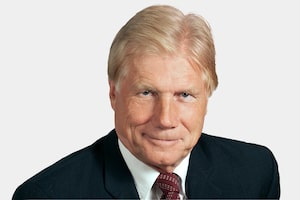On Remembrance Day, we remembered the fallen. But, this week, there was also an opportunity to remember those who may have prevented their numbers from reaching worse levels: the peacemakers.
On the 20th anniversary of the Cold War's termination, Mikhail Gorbachev is being recalled in this context, and well he might. Much as some over here like to take the credit, it was Mr. Gorbachev who changed the world back then. More precisely, all it took was one word, a word we hadn't heard before.
As a journalist, I had a close-up view of the glasnost years. As a correspondent in Washington, I had observed Ronald Reagan's denunciation of the evil empire. Canada, absurdly, did not have one newspaper correspondent in the Soviet Union. We got the Iron Curtain gospel from the Americans. "We have to open a Moscow bureau," I told The Globe and Mail. "Send me over."
It did and, by a nice turn of fortune, the bureau opened in the same year, 1985, that Mr. Gorbachev became general secretary and began making his promises of change - disarmament, democratization, perestroika and the like. Washington's initial reaction was predictable: It's propaganda, boys and girls. Don't be duped.
As a Trudeau-era Canadian, I wasn't in quite the same rush to jump to said cynical conclusion, and my credulousness led to questions about my equilibrium. But Mr. Gorbachev began to make good on his word, lifting the cloak of repression that had hung over his domain for decades.
Today's conventional wisdom suggests that the Soviets had little choice but to fold their tent, that it was our example and our pressure and our superiority that made them do it.
But to be there then was not to see it that way. The country, to be sure, was destitute. The masses moved about in a stupor of gloom. The way the central command economy functioned was summed up in this adage: "We pretend to work. They pretend to pay us."
Our system was a zillion times better, but, before glasnost, few Soviets knew much about it. And their country's condition, while deteriorating, was not much worse than it had been before. There was no workers' revolt brewing when Mr. Gorbachev took over and no more than the usual ferment in the Soviet republics and in Eastern Europe. He had the sprawling police-state apparatus at his disposal to keep the people cowed. He had the mammoth armed forces at his command and the nuclear stockpiles to keep others intimidated.
We think he had little choice, but he had a choice. Just as other Soviet dictators before him, he could have maintained a stranglehold on the system, on the republics, on the satellites, on the people. Domestically, that route would have been politically easier for him.
But he was a different Soviet man. In a society so closed, he had this unfathomable idea of being open. He believed in freedom of information, in glasnost. There were limits, of course, but, basically, he appreciated real journalism, journalism that spoke to the irrationality of the way his country worked and its relations with the West. He had a knowledge gained from experiences abroad - including a trip through Canada - and of how free societies operated.
We can talk about all the other things he did - disarmament , the freeing of dissidents, the withdrawal from Afghanistan - but the end of the Cold War and the end of Soviet Union all came down to Mikhail Gorbachev's belief in that one simple glasnost concept. Control was the cornerstone of his empire, and glasnost crushed the cornerstone. It did so with a pace that he did not foresee and that eventually overran him.
The lesson of his times could not be more clear. Communication is everything. Freedom flows from that word. Closed societies breed closed minds. Communication is the cure, the weapon of peace, of freedom, the dismantler of walls.
Observe how the great leaders - Winston Churchill, John Kennedy, Ronald Reagan and others - were exceptional communicators. Observe today how another exceptional one, Barack Obama, reaches across boundaries as Mikhail Gorbachev did back then.
It's not the economy, stupid. It's that glasnost word - openness.
 Lawrence Martin
Lawrence Martin